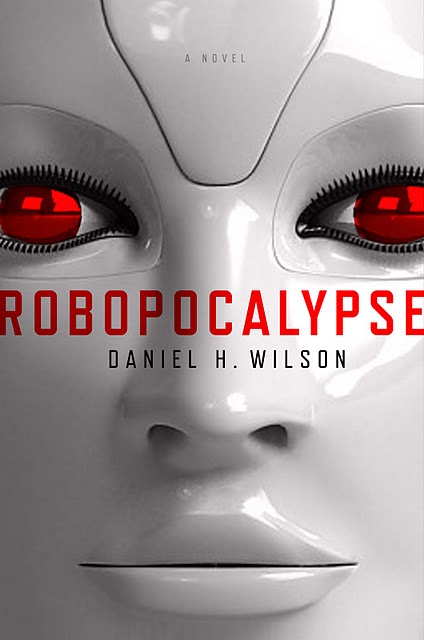
As I said, Robopocalypse is very similar to World War Z in that it too is written in a post war manner by a surivor who is now recounting the war and it's highlight moments. Instead of having a UN inspector compiling a report for a counsel like what happens in World War Z, Robopocalypse's narrator is a common foot soldier named Cormac Wallace who stumbles upon a detailed data core shortly after humanity defeats the robot leader who started the war. This data core contains details on how the robot uprising started and follows key figures through the ensuing war that raged across the planet. The book is supposed to be the result of Cormac transcribing what he finds in the data core to paper.
What works best about this book is that unlike World War Z, this story focuses more specifically on a smaller cast of characters, which it follows from shortly before the outbreak of the war to it's completion (or their death along the way). Having a core cast that the reader could connect with and care about added to the emotional drama and tension of the story. When a character dies in Robopocalypse, it means something. That was something World War Z lacked in my opinion. Written as if it was a committee report, it was incapable of adding a deep, personal narrative.
What doesn't work for Robopocalypse is the pacing. It's far too quickly paced in my opinion and the story keeps jumping ahead by months at a time. The book is only 340 pages or so, but it could have easily been 500 or 600 pages and I would have been totally fine with that. The characters are interesting and different, the story has a lot of possibility and the period of the war and it's build up covers almost 4 years of time. As I was reading the book I kept wishing the author would slow down and take more time with certain things. As it was, the book is fun, but it flys by at a breakneck speed. As a result, it loses out on a lot of potential depth it could have had if it had just taken the time to move a little slower.
As for the uprising itself, I very much enjoyed how it all went down. The story is set in a slightly futuristic society where household robots are commonplace and all modern cars are either computer controlled or computer assisted. When Archos, the superintelligent A.I. that begins the uprising, is created he quickly subverts these machines and uses them against humanity. It's a mark of all true science fiction to be a stern warning about mankind's reliance upon technology, and that is a point that is brought home rather brutally in Robopocalypse as literally billions of people are killed by their service robots or are run over by their own cars. It's bloody as hell, but it's a fun read.
Overall, the book makes for a fun, quick read. It lacks the level of detail that Brooks brought to World War Z, but it makes up for that with a more human approach to the storytelling. Robopocalypse is certainly no masterpiece of literature, but it does have high value as being the literary equivalent of a cheesy popcorn action flick. No wonder Stephen Speilberg is in talks to direct a film adaptation of it. This story lends itself beautifully to a silver screen translation. I just wish the book was a little longer.
Final Grade: B-
No comments:
Post a Comment